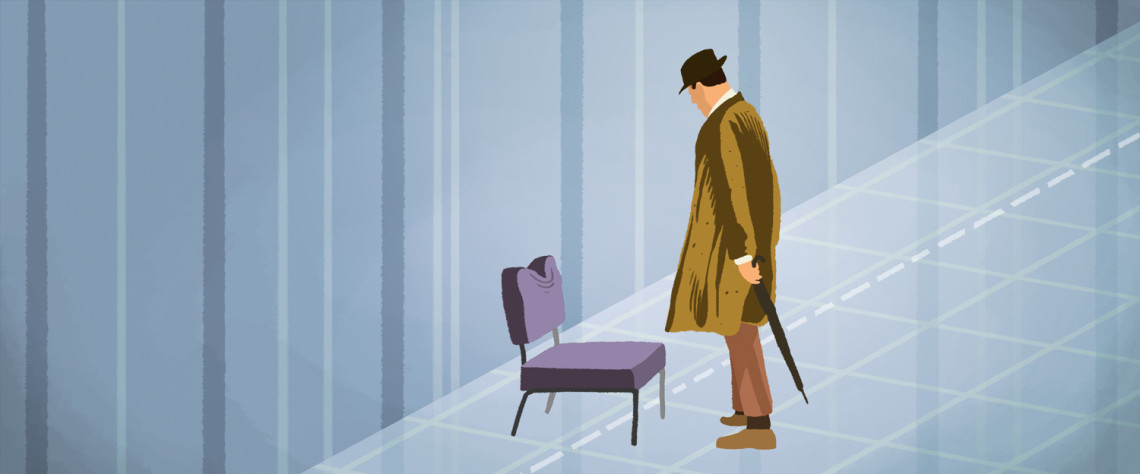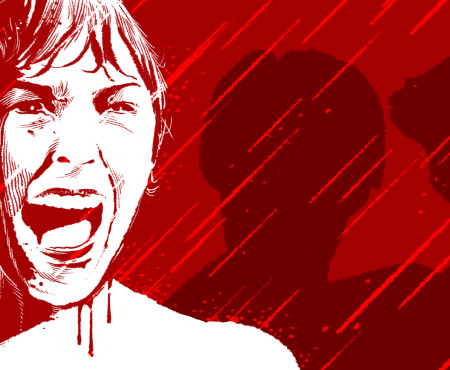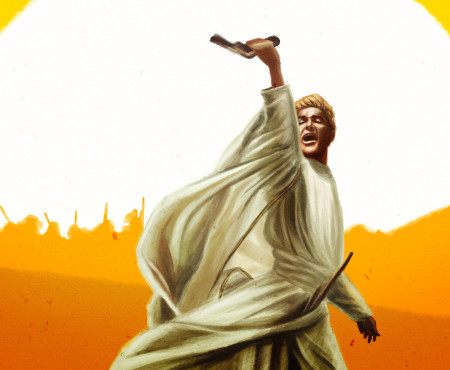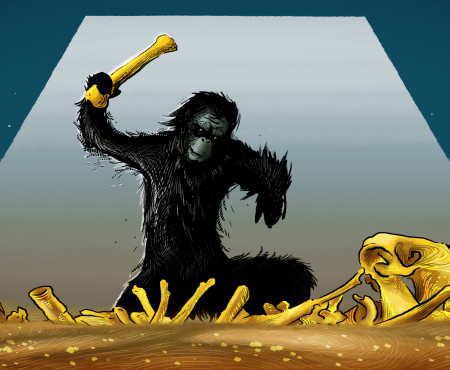It happens to all of us: urban befuddlement. Perhaps you’ve had the pleasure of jaunting around a city that wasn’t your own, lost as a nun on a honeymoon and overwhelmed by your dislocation. Maybe you’ve gone out for a job interview and wound up wandering around a building that, despite being clearly large on the outside, feels infinitely more cavernous on the inside. And everyone has, at one point or another in their lives, been made to confront the distinct possibility that time and modernity have passed them by (particularly now, in the age where Facebook is slowly fossilizing into a hoary relic of a bygone era).
You’re not alone: French filmmaker Jacques Tati knows these sensations all too well. In point of fact, he dedicated an entire sprawling, ambitious, melancholy, and thoroughly delightful movie toward exploring them. Playtime, despite its incredible pedigree and rate of recommendation, is, perhaps, a minor entry in 1960s international cinema, and yet it’s also one of the era’s great films, not to mention Tati’s most accomplished work. It’s art that manages to distill the experience of isolation into two hours and change of running time, yet never feel stuffy, heavy, or even the least bit highfalutin’.
That’s kind of a miracle. Tati approached Playtime with lofty goals in mind, the least of which are met within the film’s vast 70mm frames. A project like this requires a sense of enterprise, after all; it’s a movie about missed connections, being stuck on the outside looking in as labyrinthine contemporary edifices foil their every move, and the gravitational pull of life in Paris. Here, Tati, stepping into the shoes of his famous Monsieur Hulot character for the fourth time, finds himself repeatedly sucked into social eddies, taken off his bearings either by overenthusiastic past acquaintances or the roadblocks of industry. He’s helpless against the pull of the former and the latter, adrift in a Paris that he can scarcely navigate.
Paris, of course, is so bereft of its individual identity (often romanticized in cinema), that it could be a stand in for any major metropolitan hub under threat of having its character wiped out with antiseptic newfangled ingenuity. But for rare, fleeting images of Parisian landmarks seen in reflective surfaces – the Eiffel Tower, for example, and the Basilica of the Sacred Heart – we might be in Rome, or New York City. The most pervasive reminder that we’re in Paris lies in the film’s French dialogue track; at other times, though, it’s Barbara, a member of the American tour group that lands at the Orly Airport in Playtime‘s opening sequence, who searches tirelessly for a glimpse of “the real Paris”, and winds up thwarted by the city’s indifferent bustle all too often.
Unsurprisingly, this is all by design. Tati’s vision of Paris wound up being the catalyst that caused Playtime‘s budget to balloon out of control (clocking in at seventeen million francs); he had his set built on the outskirts of Paris, ordering the construction of two massive buildings that, in total needed more than 550,000 square feet of various materials to erect, not to mention its own power plant to sustain its energy demands. (Any half-researched piece about the history of Tativille will note that Tati famously claimed his over the top expenditures were no more costly than hiring Sophia Loren in the lead role. Four decades and change later, his logic remains strangely compelling.)
If Playtime led to Tati’s financial ruin, at least he managed to get a masterpiece out of it. The fussing, hemming, and hawing that went into breathing life (such as it is) into Tativille’s cold, homogenous veneer pays off artistically; as Monsieur Hulot glides through its office buildings and streets in dismayed, confused awe over the maze of bland architectural efficiency, we slowly but surely become quite as turned around as he. Tati’s Paris is a linear geometric marvel, boasting a layout intended to get all foot traffic from point A to point B without nasty traversing curves and arcs. It’s also soulless, colorless, lifeless, and composed of so many means of division as to forestall any meaningful human contact.
As Hulot and Barbara each make their way through Tati’s Paris, often wandering unwittingly within shouting distance of one another, Playtime‘s mockery of this futurist landscape commences. For all of the measures taken to improve Paris and make it more maneuverable, the actual result is a catastrophic rush of hideous, carelessly arranged waste. Tati ruthlessly takes the mickey out of his handiwork, packing every single scene he orchestrates with sight gags that a second (and likely third) viewing is necessary to catch them all. (From start to finish, this is the Star Wars Cantina scene of visual punchlines.) Even describing them here feels fruitless – they don’t work on the page, only in practice, and they number in the tens of dozens, which makes the prospect of transcribing them daunting.
But by making fun of his personal affectation of a Paris gone modern, Tati is really inviting us to have a laugh at ourselves. This is our world, after all, one in constant upheaval and all in the name of maintaining cultural currency; you may live in Boston, you may live in Madrid, you may live in London, but regardless of where you’re anchored, chances are you’re living in the kind of state of the art yet hopelessly backwards society Tati has so much amused contempt for in Playtime. Even forty seven years after its release, the film reflects our consumer tendencies and the droning commercial machines that feed them. As evolved as we may consider ourselves, we’re still addicted to our gadgetry; maybe we’re above buying brooms equipped with headlights, but we still love the technological frivolities the 2010s have to offer.
Playtime invokes obvious caricature to make its point, so ultimately the resemblances between Tati’s presentation and reality are only found in passing. But in consideration of the film’s age, it’s remarkably prophetic even today, and has lost none of its comic potency. Even among the tragic erasure of every intangible quality and physical element that defines Paris, Tati finds humor, joy and even compassion; as the film winds down, following a lengthy second half spent in the confines of a high class pop up nightclub, it raises a nearly anarchic spirit of celebration as sophistication gives way to revelry and the casting down of Tativille’s artifice. We even catch a moment of kindness as Hulot and Barbara part ways with the exchange of an unexpected gift. Maybe the cities of tomorrow will lose all of the charm they bear today, but in the end, perhaps we won’t lose our humanity.





















2 thoughts on “History of Film: “Playtime””
*golf clap*
Great way to kick off the series, Andy.
Thanks buddy! It was nice to re-watch this film with fresh eyes; it’s been a while. Unsurprisingly, I got more out of it on second viewing.